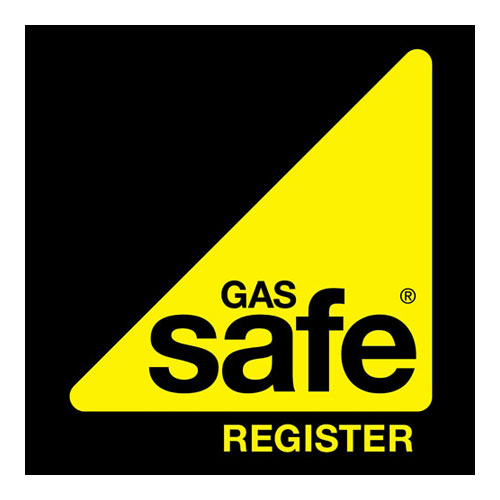Boilers (More Info)
Your Boiler is the heart of all your Central Heating and Hot Water needs and that is never more apparent than when it goes wrong!
Panic invariably ensues, abated only by confirmation that a knowledgable Heating Engineer will shortly arrive to diagnose and repair the problem, reinstating those often taken for granted hot showers and toasty warm rooms.
Just like your car, your Boiler should be looked after, serviced regularly and maintained in good working order to avoid those moments of horror and correct issues before they arise.
We at CPHG Services are technically familiar with all major brands and types of Gas Boilers and can advise on, supply, fit, service, repair and maintain all of them.
CPHG Services are Ideal, Worcester Bosch & Vaillant Gas Boiler Accredited installers & service engineers and are fully familiar and experienced with every other major brand of Natural Gas Domestic Gas Boiler.



CPHG Services are Gas Safe Registered (Formerly Corgi). Remember, It is a legal requirement that any person installing or servicing a Gas Boiler MUST be Gas Safe Registered Engineer. Our Gas Safe registration can be checked here.
Depending on the system you have or intend to have there are several types of Gas Boilers available and to help you identify them here’s a brief overview of each type with their particular advantages and disadvantages. But first, the most common question asked.
What is a Condensing Boiler?
"Condensing Boiler" is an umbrella term used to describe all types of modern Gas Boilers, Combi’s, System & Regular Boilers, (details below). Without getting too technical, modern condensing Boilers are more cost efficient to run than non-condensing Boilers.
To achieve this, they recover some elements of the flu gases, cooling them and using the recycled heat to heat the water, reducing gas consumption.
It is worth noting however that any condensing Boiler MUST be installed and the system set up correctly in order for the Boiler to operate in the efficient cost saving condensing mode.
All condensing Boilers have a ‘condensate drainage’ pipe connected to them which is strictly governed as to where it can terminate and drain. Next, the three domestic Gas Boiler types.
1. THE COMBINATION BOILER:
'Combi Boilers' are the most common type of domestic Gas Boiler in use today.
They are easily identified, they provide instant hot water when a tap or shower is turned on in addition to running Central Heating.
They are also easily identified by the many pipes connected to them, Central Heating Flow, Hot Water Distribution, Gas, Cold Main Flow, Central Heating Return, Pressure Relief, & a plastic Condensate Pipe, (7 in total).
Advantages of a Combi Boiler:
- There is no need for additional hot water cylinders or storage header tanks in the loft as the hot water is supplied on demand by the Boiler and there is no risk of the hot water ‘running out’.
- No additional cost of heating a tank of hot water every day, (especially when you don’t use it all everyday).
- No additional installation or maintenance costs for external pumps, zone valves and other plumbing pipework and parts needed for an additional hot water cylinder.
- Most Combi Boilers are Energy A Plus Rated (90% + Efficient). Smaller carbon footprint compared to conventional Boilers as you only heat the hot water you use.
- Can usually be situated in a kitchen cupboard space for convenience and virtually instantaneous hot water available at the adjacent kitchen tap.
- The ideal choice for single bathroom homes, especially where space is a premium.
Disadvantages of a Combi Boiler:
- As a Combi Boiler draws all of its cold water supply directly from the mains it will struggle under high hot water demand. Combi’s, depending on Kw size, can deliver between 12 litres (24Kw) - 15 litres (35Kw) of hot water per minute. This is perfect for a hot kitchen tap or a shower, (35Kw Combi Boilers perform better with two outlets open) but if several hot water outlets are open at once pressure and flow rate through all outlets will drop markedly, (not ideal when your halfway through rinsing your hair and little Freddy turns on the kitchen hot tap !)
- Combi Boilers contain many moving parts and electronic devices and as a consequence are generally more time consuming and expensive to repair than their more basic Conventional and System Boiler cousins. (It’s worth remembering though that most modern Combi Boilers do come with a 10 years. full parts and labour warranty so this should be less of a concern).
- As a Combi Boiler powers both Central Heating and Hot Water, if they do happen to break down or malfunction you will be without either service until repair.
- Not suitable for properties with multiple bathrooms and/or very high hot water demands.
Common Combination Boiler problems / faults:
- Central Heating is working but not hot water (arghh!) …This problem, more often than not, is a faulty ‘diverter valve” which directs the hot water within the Boiler to heat either the Central Heating or Hot Water demand. Sometimes it can just ‘stick’ in the Central Heating position, (usually after summertime when the central heating hasn’t been used) and it can be manipulated and ‘freed’ up. Often though it will require the fitting of a manufacturers new diverter valve part.
- Hot water supply runs hot and cold and / or extremely hot… this is often a fault with either the hot water temperature sensor which can be replaced with a new part or can be due to a scaled-up and blocked ‘plate heat exchanger” that heats cold mains water directly in the Boiler. If the latter is the case, it is often accompanied with a noise when the hot water circuit is running, similar to the sound of a kettle Boiling, known as ‘kettling’. This unfortunately usually means the secondary heat exchanger needs to be replaced in the Boiler.
- Boiler losing system pressure: This is a very common issue. The main reasons for loss of system pressure can vary between a leak somewhere in the radiator circuit, (which can sometimes be difficult to locate if pipework is running under the ground floor), or a faulty ‘pressure relief’ valve in the Boiler, (which is indicated by water dripping or pouring from the pressure relief pipe which terminates outside the property). It can be a very frustrating issue to resolve if loss of water is not immediately visible. Of course, the pressure in a sealed system will occasionally have to be topped-up due to natural evaporation, but regular need should be investigated.
2. THE SYSTEM BOILER:
System Boilers contain the heat exchanger within which the system water is heated, the gas valve and the system pump which pumps the water around the system, (as well as some other technical controls and parts).
A System Boiler can be identified by the fewer number of pipes attached to it than a Combi Boiler.
It will have, Central Heating Flow, Gas Supply, Central Heating Return, Pressure Relief & a plastic Condensate pipe (5 in total).
System Boilers are used in conjunction with additional & external Hot Water Cylinders, (the old style ‘open-vented’ Central Heating and Hot Water systems with header tanks in a loft or the more modern Sealed Unvented Hot Water Cylinder systems.
Advantages of System Boilers:
- As System Boilers do not provide instant on-demand hot water, they can be located in a wider scope of areas as the location of the Hot Water Cylinder itself is more relevant to the delivery characteristics of the hot water.
- With fewer components than a Combi Boiler, they are easier and consequently generally cheaper than a Combi Boiler to repair and there are also fewer parts and controls inside that can develop a fault and go wrong.
- Perfect for properties with multiple bathrooms or large hot water demands as the Boiler serves to heat a Hot Water Cylinder which can have a capacity of anything from 120 litres to 400 litres & upwards and if correctly installed with the right system components can service and supply multiple hot water outlets simultaneously without a drop-off in flow rate or pressure. We would advise that homes with two or more bathrooms/en-suites to have one of them fitted with an electric shower……should the Boiler or system develop a fault the electric shower will always be available to use during the Boiler / system fault down-time.
Disadvantages of System Boilers:
- Surprisingly the disadvantages of System Boilers themselves are rather moot when compared to Combi Boilers simply because they are each unique. If you have, want or need an external Hot Water Cylinder system you would have either a System or Regular Boiler, not a Combi Boiler. The associated disadvantages of System Boilers are, however, the actual requirement for a Hot Water Cylinder, the space required in your home to locate the Cylinder, the additional pipework and controls required to plumb the cylinder into the system and the associated installation costs if new & the possible additional maintenance and repair costs for system component faults and breakdowns.
Common System Boiler problems / faults:
- As a System Boiler contains a lot less mechanical, electrical and functional parts than a Combi Boiler, they are far less likely to develop a fault.
- If they do, it is generally to do with a faulty pump or a faulty electrical temperature sensor, both of which are more often than not either easy to repair or not cost prohibitive to replace.
- Most faults / problems with systems that utilise a System Boiler are usually with components outside of the Boiler, like the system zone valves.
3. THE REGULAR BOILER:
A Regular Boiler is the most basic Boiler of all.
It contains everything a System Boiler has, except for a pump, (the system pump would consequently be cited externally as part of the zone-valve arrangement normally adjacent to a Hot Water Cylinder).
The points above for the System Boiler apply to a Regular Boiler, except for anything to do with an internal pump.
CPHG Services are Ideal, Worcester Bosch & Vaillant Gas Boiler Accredited installers & service engineers and are fully familiar and experienced with every other major brand of Natural Gas Domestic Gas Boiler.















